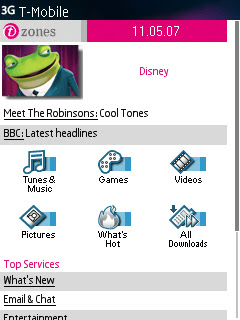 Google Spreadsheet of the price of data in Canada (and some other places).
Google Spreadsheet of the price of data in Canada (and some other places).
Note that Rogers Telecom helpfully multiplies your costs by 6 if you wander into that big country south of the 49th parallel, taking you from 0.5 cents a kilobyte (yes, kilobyte: I've seen phones that send more than two kilobytes in request headers alone) to 3 cents.
Putting it in a Google Spreadsheet is a really cool and powerful way of demonstrating how twisted data prices are, so top marks to Thomas Purves for putting it up as a part of his post reported on here.
We'd like to expand on that so - I'm trying to put together a "best deal" spreadsheet in Google.
But modelling it is evil.
Cost is the thing we get asked about most of all, and its a really thorny issue to crack, largely because the mobile operators go out of their way to make it as hard to compare as possible.
In the UK alone, for example, you have operators that operate tariffs with a daily cap and an excess, (eg, Vodafone will charge you a pound each day you go online, so long as you use less than 15Mb of data, with a £2 surcharge for each megabyte over the 15Mb), operators who charge per service (eg, Three) and operators who charge a flat rate for all you can eat so long as you don't take the mickey, (T-Mobile, ray!).
Unfortunately, that's usually only one tariff in a portfolio of tariffs so, for example, T-Mobile's pay as you go offering looks a lot like Vodafone's, with a daily surchage, and Three also offer flat-rate pricing via X-Series.
Why's it so difficult to compare? The argument goes that if users were able to compare easily between mobile tariffs (and data's only one part of that) they...gosh!... would move to operators that offered better prices, thus increasing churn and starting a price war. I used to work for a small web agency that did some consulting work for a large airline. One of the ideas we came up with as a sales promotion was the concept of the Isoquid. The idea was to draw lines on a map of the world showing how far £200 would take you by air, so that if you did happen to have exactly that sum of money in your pocket you'd be able to book a ticket from the interface we designed. The idea was turned down because it showed all too graphically how European flights were artficially expensive compared with flights to the US. The £200 that got you to New York would drop you somewhere short of Geneva. (Bear in mind this is before the budget airlines really kicked off.)
On top of that confusion the amount of data that you use reading Mobizines (which are free from us to you, except for Three users, and the three quid a month is a bloody good deal) depends on the number of titles you have and the type of title.
Take the example of someone who only subscribes to Sudoku, (it's okay, we still love you, but you're missing out on a world of fun). The Java client version of Sudoku, which is one of the most popular downloads we have at GetJar, is 168 bytes to update. That's right, you can fit it in one line of BBC Basic. Refresh to get a new puzzle daily and Vodafone's new pricing means you'll end up paying £30.
On the other hand someone with subscriptions to Evo and Monkey (say) which are 225 times more data will only pay four quid because they only update on a Wednesday.
So while we hear your requests for a simple way to calculate how much subscribing to a Mobizine is going to cost, it's extremely hard to build up the comparisons without ending up with something that looks like a City trader's desktop. We're working on clarifying the proposition (or make things simple, in English) so watch this space.
So why does a gigabyte of data cost £20 in New Zealand and £2908 in Canada?
The polite answer is that New Zealand has a more competitive market than other territories. The impolite answer is that the operators are petrified of ending up competing on raw price as simple ISPs so they're very very gently deflating costs.
Eventually they will be bit pipes and you'll be able to choose whether you want to use the add-on voice service from your mobile operator or just stick with your Skype subscription but it's gonna be a long time coming. (And perhaps the wifi providers will eat their lunch while the telcos are still trying to decide which wine goes with Sea Bream.) In the meantime expect a very distorted market.
Oh and all of the above and the fact that the regulatory authorities have enough on their hands dealing with things like cutting voice roaming costs to worry about data yet...
.png)

















.jpg)









